How long do microgreens last in the fridge?
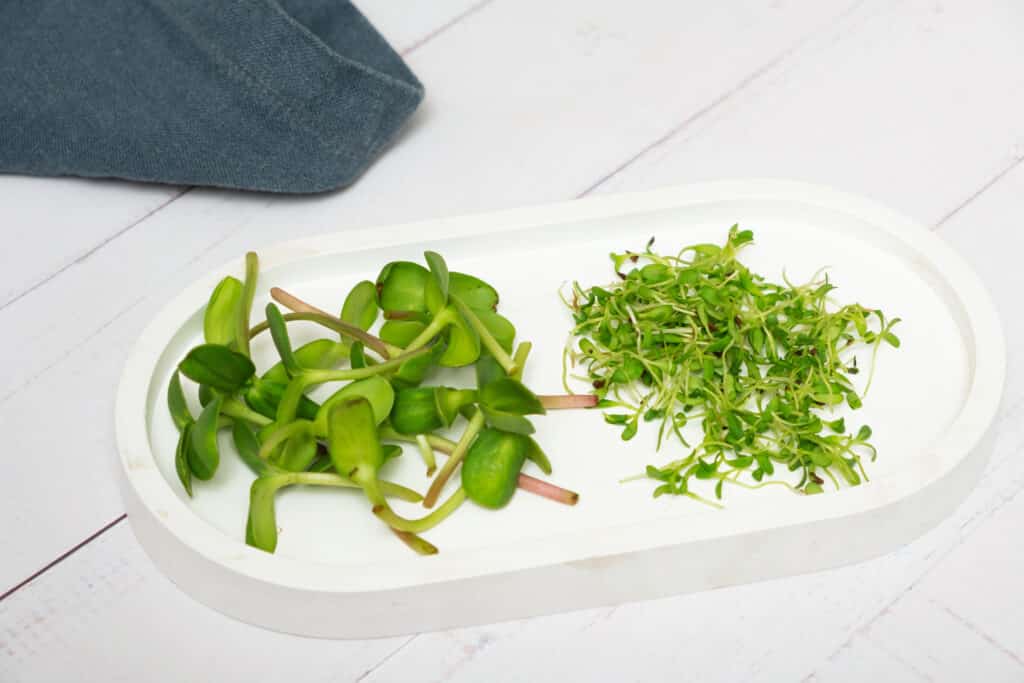
How Long Do Microgreens Last in the Fridge? Key Takeaways The shelf life of microgreens in the refrigerator typically ranges from 5 to 7 days. Maintaining proper storage conditions, such as storing microgreens in a sealed container or airtight bag and keeping them at a temperature between 35°F and 40°F (1.7°C and 4.4°C), can help […]
Can you eat microgreens raw?
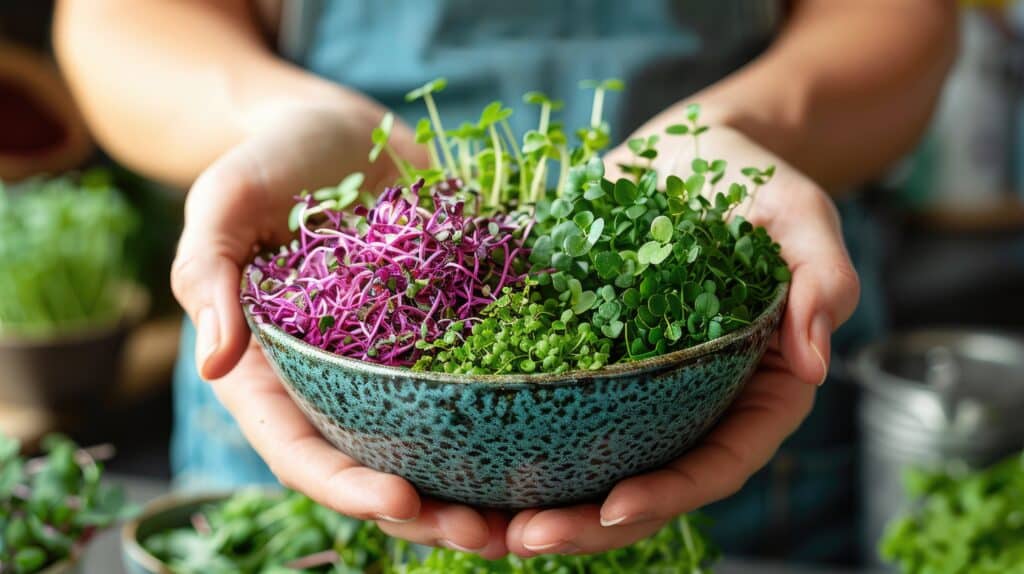
Can You Eat Microgreens Raw? Key Takeaways Raw microgreens are generally safe to eat and have a lower risk of harmful pathogens compared to sprouts. It is recommended to rinse microgreens lightly before consuming them to remove any potential contaminants. Pregnant women, children, and the elderly with weaker immune systems should avoid consuming raw microgreens […]
Do I need to soak microgreens before planting?
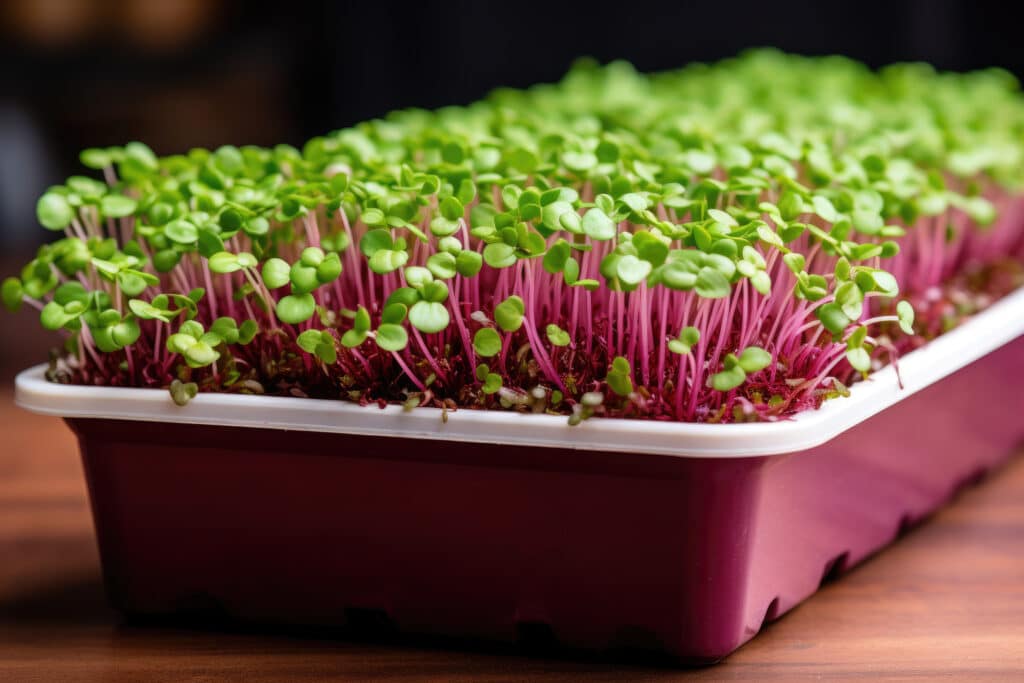
Do I need to soak microgreens before planting? Key Takeaways Soaking microgreens before planting can improve germination rates Soaking certain types of microgreens, such as beet, chard, and sunflower, can be particularly beneficial Soaking microgreens can increase nutrient uptake and promote faster growth rates Soaking microgreens before planting is a topic of interest for many […]
What is the best microgreens to eat?
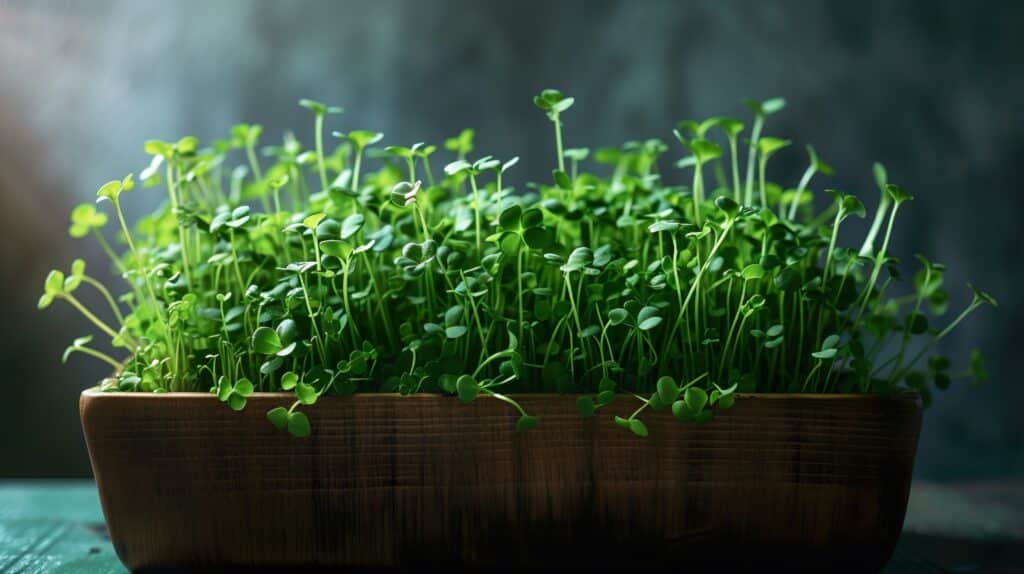
What is the Best Microgreens to Eat? Key Takeaways Broccoli microgreens are rich in sulforaphane, a compound associated with lower cancer risk. Kale microgreens are packed with antioxidants and can help protect vision. Pea shoots, radish microgreens, and sunflower shoots are flavorful options to add to dishes. Microgreens are small, young plants that are harvested […]
Which microgreens are not edible?
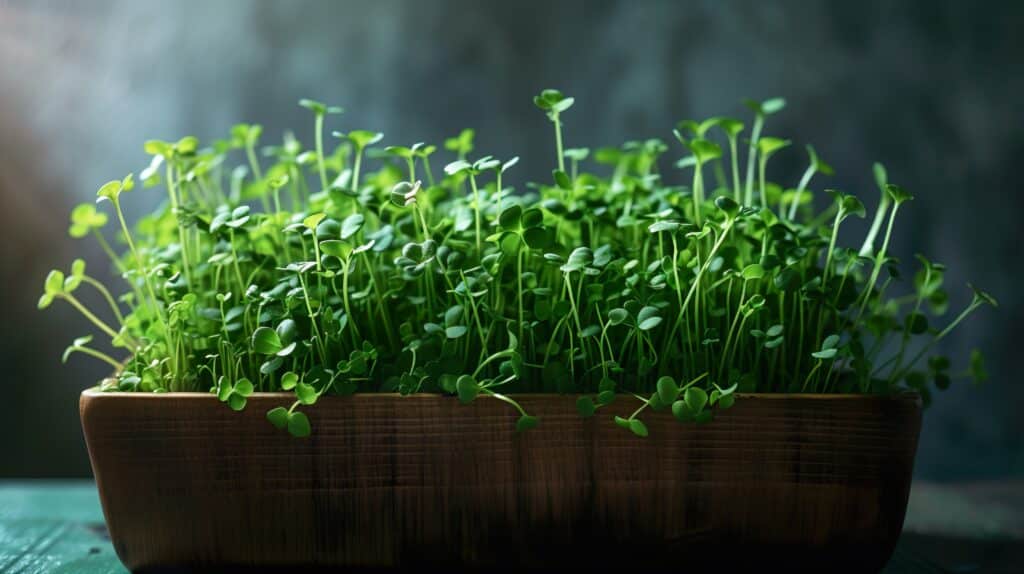
Which Microgreens are Not Edible? Key Takeaways Microgreens from the nightshade family plants, including tomatoes, potatoes, peppers, and eggplants, should not be consumed due to their toxic alkaloids. Buckwheat microgreens can cause skin phototoxicity and rashes if eaten in large quantities. Quinoa and alfalfa microgreens, while generally safe in smaller amounts, can have adverse effects […]
Do you have to wash microgreens?
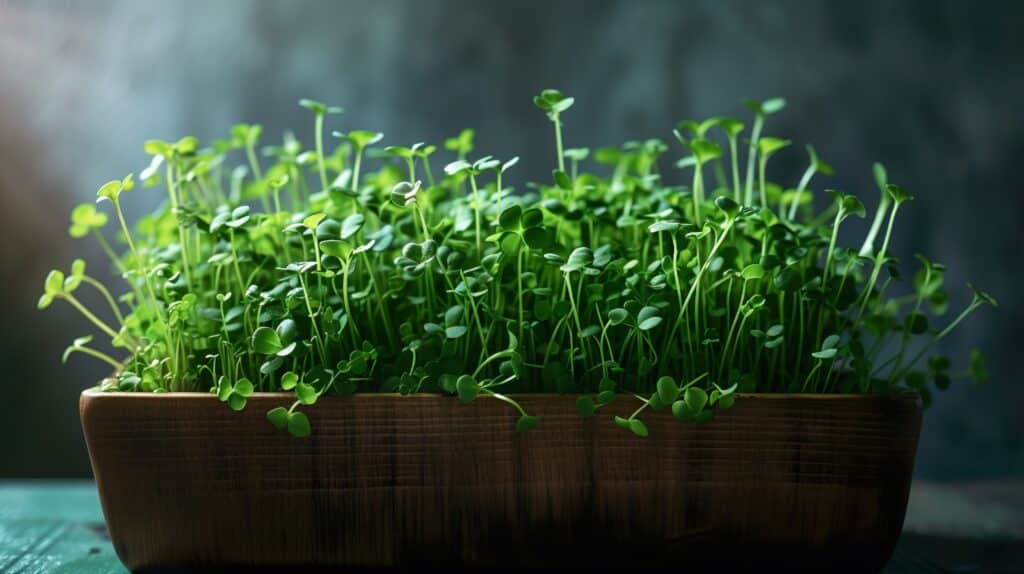
Do You Have to Wash Microgreens? Key Takeaways Microgreens should be washed before eating to remove dirt, debris, and potential contaminants. Washing microgreens helps eliminate potential health risks and reduces the risk of foodborne illnesses. The washing process involves rinsing microgreens under running water, gently swishing them to remove dirt, and patting them dry with […]
Can you eat microgreens everyday?
Can You Eat Microgreens Everyday? Key Takeaways Microgreens offer numerous health benefits, including increased nutrient intake, blood sugar regulation, improved cognitive function, reduced risk of heart disease, cancer prevention, eye health protection, and prevention of anemia. The recommended daily intake of microgreens is about 1-2 cups for adults, but this may vary based on individual […]
What vegetables are microgreens?
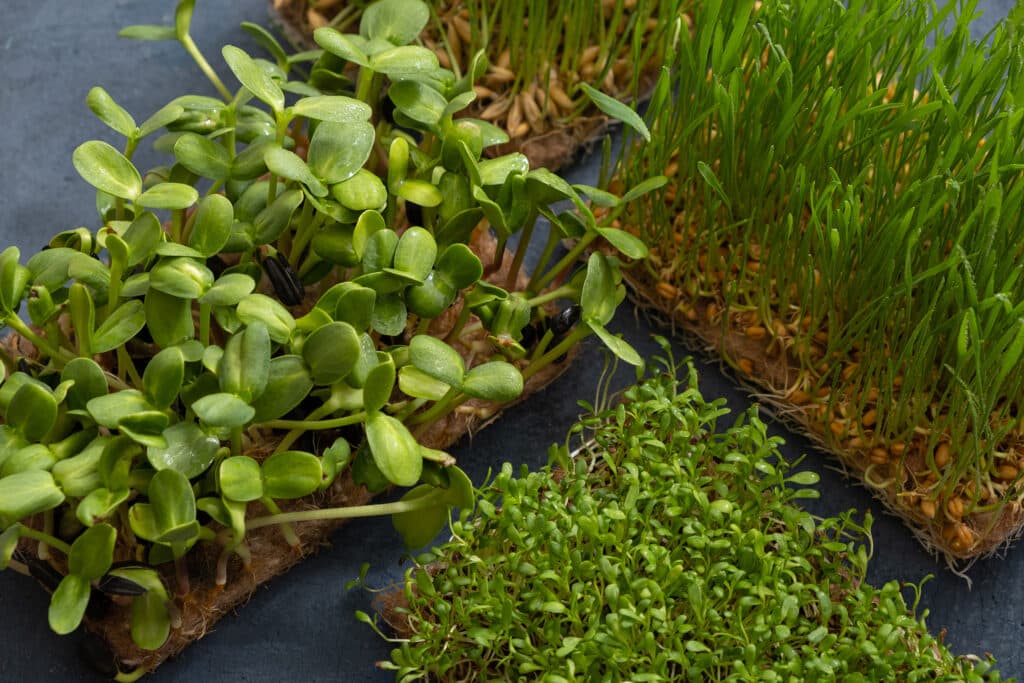
What Vegetables are Microgreens? Key Takeaways Microgreens are young, tender plants that are harvested at an early stage of growth and are packed with flavor, nutrition, and visual appeal. There are over 80 types of microgreens commercially available, each with its own unique flavor profile and culinary uses. Not all vegetables are suitable for microgreens, […]
What are the healthiest microgreens?
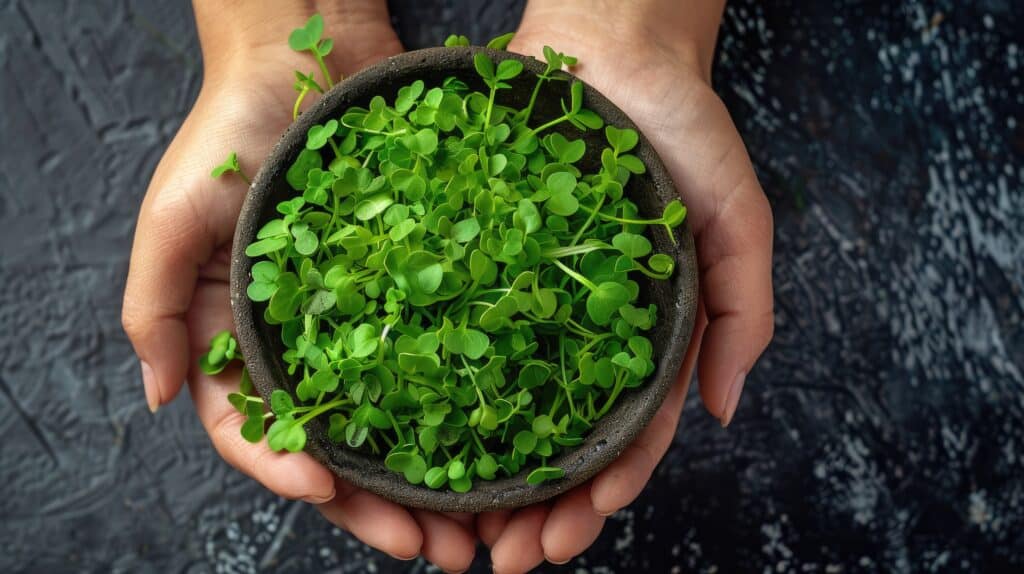
What are the Healthiest Microgreens? Exploring the Nutritional Benefits Key Takeaways Microgreens are highly nutritious and can contain up to nine times more nutrients than their mature counterparts. Specific microgreens, such as broccoli, fenugreek, and red cabbage, offer unique health-promoting properties. Microgreens can be incorporated into a variety of dishes to enhance both the flavor […]
Do microgreens regrow after cutting?
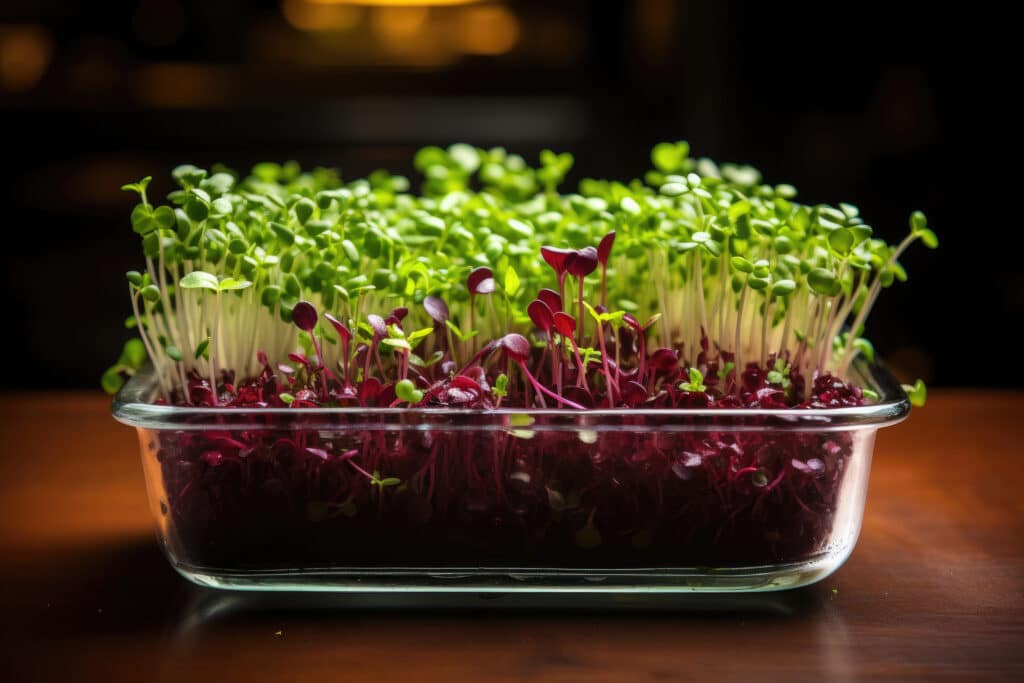
Do Microgreens Regrow After Cutting? Key Takeaways Most microgreens do not regrow after being cut, making them a one-and-done crop. However, some microgreens have the potential to regrow with proper care and maintenance. The regrowth potential of microgreens depends on factors such as the specific variety, care, and environmental conditions provided. Microgreens have gained popularity […]

